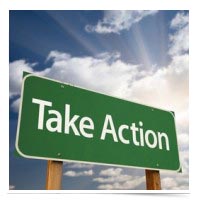 “Don’t find fault. Find a remedy.”
“Don’t find fault. Find a remedy.”
Henry Ford, American industrialist
Leaders aren’t afraid to own their mistakes and their successes. Taking ownership keeps focus where it should be: On progress. Finding fault, assigning blame, and “illustrating the disaster” tends to keep people (and teams) mired in a negative, unproductive zone.
Owning results is a habit you have to cultivate in order to reach your goals. It’s not easy at first to get used to saying, “I did this and it didn’t work” or even, “I said I’d do this, I didn’t, and therefore I didn’t meet my goals.” But the more you do it, the easier it becomes, and the easier it becomes, the faster you get on track to making amazing things happen.
So let’s talk a little about what it means to truly “own it.”
1. Get used to saying “I” instead of “we.” Don’t bury your failings or cover for others. Don’t try to suggest you did all you could, but someone else prevented you from meeting your goal. If someone didn’t come to your aid, perhaps you could say, “I was unable to motivate XYZ to help me with this project,” but don’t soft pedal your role. Step up with confidence.
2. Don’t beat yourself up or applaud yourself too much. Owning it is about the facts, and excessive lamentation or celebration doesn’t help anyone move forward. A simple apology or pat on the back will do. What’s exciting is the next challenge!
3. Get brutally specific about what you did and what the results were.What you decided to do, what you did, and what happened are all connected. Make those connections explicit. We learn from what works and what doesn’t.
4. Move on. How will you fix the problem? What comes next? How will you enhance your success the next time around? Once you own results, the way is clear for the next steps.
5. Track methods and results over time. Failing 1,000 times is no big deal, assuming you’re trying 1,000 new ideas. Keep track of what you’ve tried and what happened so you don’t end up repeating the past.
If you get in the habit of “owning it” you’ll start exceeding your goals before you realize it. Owning it fosters learning, and learning is the key to right actions.


